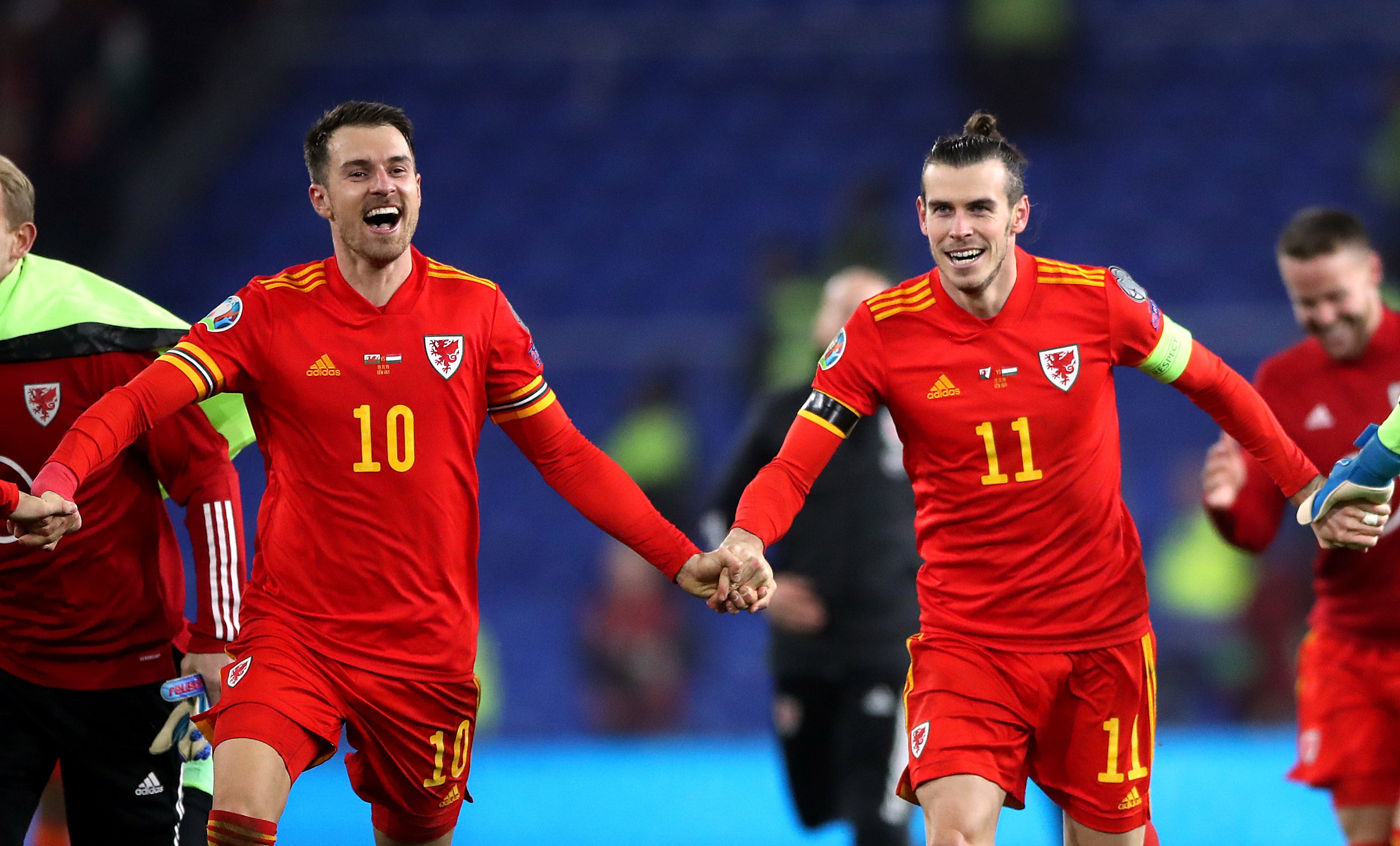Wales clear hurdles but hope new heroes can breathe fire into Euro 2020 campaign
The Dragons, who reached the semi-finals of Euro 2016, go into this year’s finals without manager Ryan Giggs.

Your support helps us to tell the story
From reproductive rights to climate change to Big Tech, The Independent is on the ground when the story is developing. Whether it's investigating the financials of Elon Musk's pro-Trump PAC or producing our latest documentary, 'The A Word', which shines a light on the American women fighting for reproductive rights, we know how important it is to parse out the facts from the messaging.
At such a critical moment in US history, we need reporters on the ground. Your donation allows us to keep sending journalists to speak to both sides of the story.
The Independent is trusted by Americans across the entire political spectrum. And unlike many other quality news outlets, we choose not to lock Americans out of our reporting and analysis with paywalls. We believe quality journalism should be available to everyone, paid for by those who can afford it.
Your support makes all the difference.Five years on from energising and thrilling an entire nation, Wales are back at the European Championship after the most turbulent of times.
Wales left an indelible mark on Euro 2016 in France reaching the semi-finals under the charismatic Chris Coleman as Gareth Bale Aaron Ramsey and company lit up the competition.
Dubbed ‘The Red Wall’ by the players, fans were just happy to be at a major tournament after 58 years of hurt since Wales’ only previous finals appearance at the 1958 World Cup.
The vocal support was over 30,000 strong and their bonhomie and good behaviour won them an “outstanding contribution” award from UEFA.
After a global pandemic you don’t have to look far to see how things have changed.
Wales have drawn the short straw in the cross-continent tournament, having to make the 3,000-mile trip to Azerbaijan to play Switzerland and Turkey in Baku before heading to Rome for their final Group A fixture against Italy.
Most of the bricks in ‘The Red Wall’ will be missing amid Covid’s travel restrictions, while the glaring absentee from the party will be manager Ryan Giggs
Having masterminded a qualifying campaign which saw Wales finish as runners-up to Croatia but crucially above Slovakia and Hungary amid joyous scenes in Cardiff at the end of 2019, Giggs has been on leave from his role since November.
The former Manchester United star has been charged with assaulting two women and controlling or coercive behaviour. He denies the charges.
In Giggs’ place has come Robert Page, who had just taken over at Sky Bet League One club Northampton when Wales were enjoying themselves in France five years ago.
Page, a no-nonsense former defender and Wales captain, was on Giggs’ backroom staff and has overseen four wins in six games with Mikel Arteta’s Arsenal assistant Albert Stuivenberg by his side.
Amid all the turmoil caused by the Giggs situation, as well as the recent departure of long-serving Football Association of Wales chief executive Jonathan Ford, Page has managed to maintain an even keel on the pitch.
Promotion to the top tier of the Nations League was secured with wins over the Republic of Ireland and Finland, and a top-10 scalp was taken as Mexico were beaten in a Cardiff friendly.
The only defeat came in a 2022 World Cup qualifier away to Belgium, the world’s top ranked side, but Wales immediately bounced back by beating decent Czech Republic opponents.
While many new faces have joined the squad since 2016, the one constant feature has been the talismanic role played by Bale.
Ashley Williams may have skippered Wales in France, but Bale took on the role of leader with his assertion that “the dragon on my chest” was all he needed for motivation elevating him to new heights of nationwide popularity.
Bale has not added to his record 33-goal tally since October 2019, but his influence on a fresh-faced Wales squad and ability to produce match-winning moments remains undimmed.
The free-scoring way he finished his Tottenham loan spell from Real Madrid also suggests that he has hit peak form in time for the Euros.
Familiar names from France are set to join Bale at Euro 2020, among them Ramsey, Joe Allen, Ben Davies, Wayne Hennessey and Chris Gunter, the first Wales men’s player to win 100 caps.
Page hopes that the midfield pair of Allen and Ramsey – who were both named in the official Euro 2016 team – can shrug off injury concerns, especially the latter whose fitness issues at Juventus have restricted him to starting only three of Wales’ last 23 games.
Alongside the old guard stands a new and talented wave of youngsters, most of whom were quickly promoted into the senior ranks by Giggs.
Ethan Ampadu, Harry Wilson and David Brooks were given their debuts by Coleman before blossoming under Giggs.
Neco Williams, Joe Rodon, Daniel James and Tyler Roberts have also emerged to provide energy and enthusiasm.
The introduction of towering Cardiff striker Kieffer Moore, a late bloomer who did not make his international debut until the age of 27, provides Wales with an attacking focal point that had previously been missing.
Hal Robson-Kanu, the cult hero of Euro 2016 after his wonder goal in the 3-1 quarter-final win against Belgium, failed to make the squad despite finding some late-season form at West Brom.
But Wales will hope they can find new heroes to excite the nation again – even after all the obstacles that have stood in their way.